Chief Rabbi’s ten-ure! A celebration of Ephraim Mirvis’ decade in the role
Ten years ago this week, on 1 September, Rabbi Ephraim Mirvis was installed as Britain’s 11th Chief Rabbi. Jenni Frazer looks back on a hectic and historic 10 years
Jenni Frazer is a freelance journalist
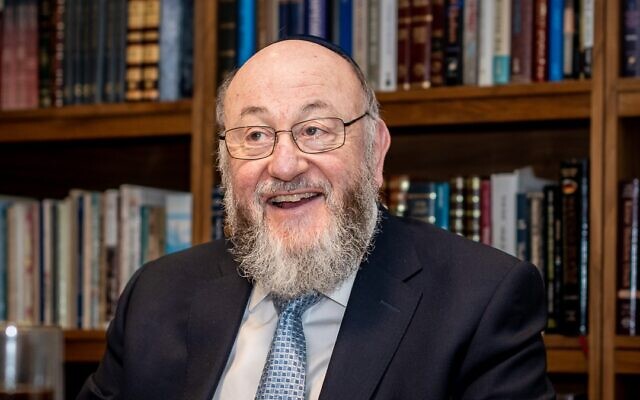
Ten years ago this week, on 1 September, Rabbi Ephraim Mirvis was installed as Britain’s 11th Chief Rabbi in a ceremony at St John’s Wood Synagogue attended by Prince Charles.
During his decade in office, the Chief Rabbi — knighted in the 2023 New Year’s honours list — has had challenges and achievements, some internal and domestic, some hitting the national and occasionally international headlines. Here, Jewish News looks at some of Chief Rabbi Sir Ephraim Mirvis’s highs and lows.
If one word could be applied to his general approach it might well be “inclusivity”, as he sought from the very outset to bring in diverse members of the Jewish community, whether religiously observant or not.
His first act was an ostensibly controversial one, to attend the 2013 Limmud end-of year conference, boycotted by Orthodox rabbis and — tellingly — avoided while he was Chief Rabbi by his predecessor, Jonathan Sacks. But Chief Rabbi Mirvis made it clear within days of his appointment that he would attend, despite criticism from some quarters that an Orthodox presence would give unwarranted credibility to the non-Orthodox. His attendance at Limmud, almost certainly supported by large parts of the modern Orthodox community, paved the way for other Orthodox rabbis to go to the cross-communal event.
It would be remarkable if any Chief Rabbi of the United Synagogue drew unqualified admiration from the non-Orthodox rabbinate, though Rabbi Shoshana Boyd-Gelfand once said that they “each approached each other with a twinkle in the eye”.
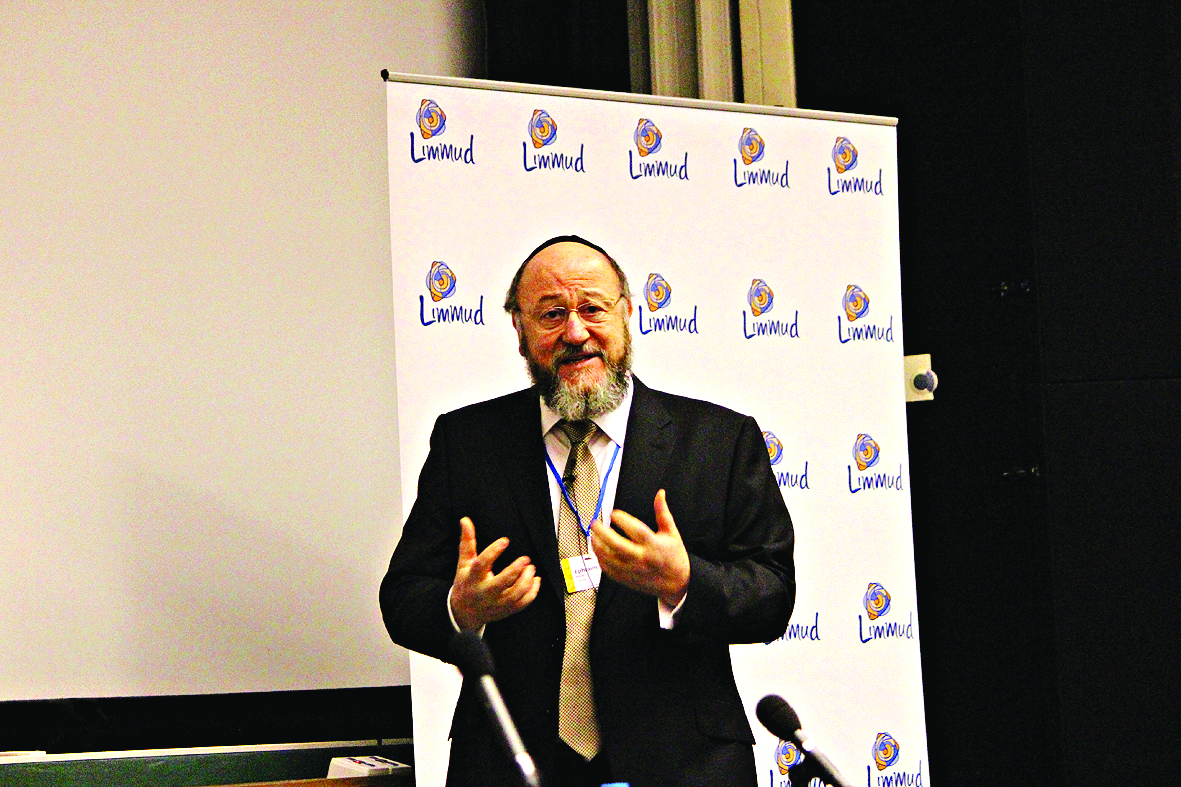
Just the same, after Limmud, Chief Rabbi Mirvis turned his attention to the issue of how women operated and were treated in the community. At the beginning of his tenure, this led to an expansion of his decision to appoint Britain’s first female halachic adviser, Yoetzet Halacha, in his previous role as minister of Finchley Synagogue. Once in office as chief rabbi, he made expanding the roles of women a priority, and in 2016 he launched the Ma’ayan programme, training women as advisers on Jewish law, particularly in the area of family purity, and as high calibre adult educators.
In June 2021, however, this progressive approach ran into trouble, as the Chief Rabbi refused to allow Dr Lindsay Taylor-Guthartz to continue teaching at the London School of Jewish Studies after she qualified as “rabba” and received recognition from New York’s Yeshivat Maharat.
He said she had “stepped beyond the boundaries of mainstream Orthodoxy”, amid a communal row in which hundreds of people signed adverts in Jewish newspapers urging him to revoke his decision. Eventually, she was allowed to resume her post, having agreed not to use the title “rabba” at LSJS.
One of Sir Ephraim’s particular passions — undoubtedly inherited from his parents and his South African upbringing — is that of achrayut, or social responsibility. He has expressed that in various ways, not least in his support for the annual Mitzvah Day event, and the launch of his own Ben Azzai programme, which takes a curated group of the country’s most talented Jewish students to learn about issues such as the climate crisis, international development, global public health and the refugee crisis.
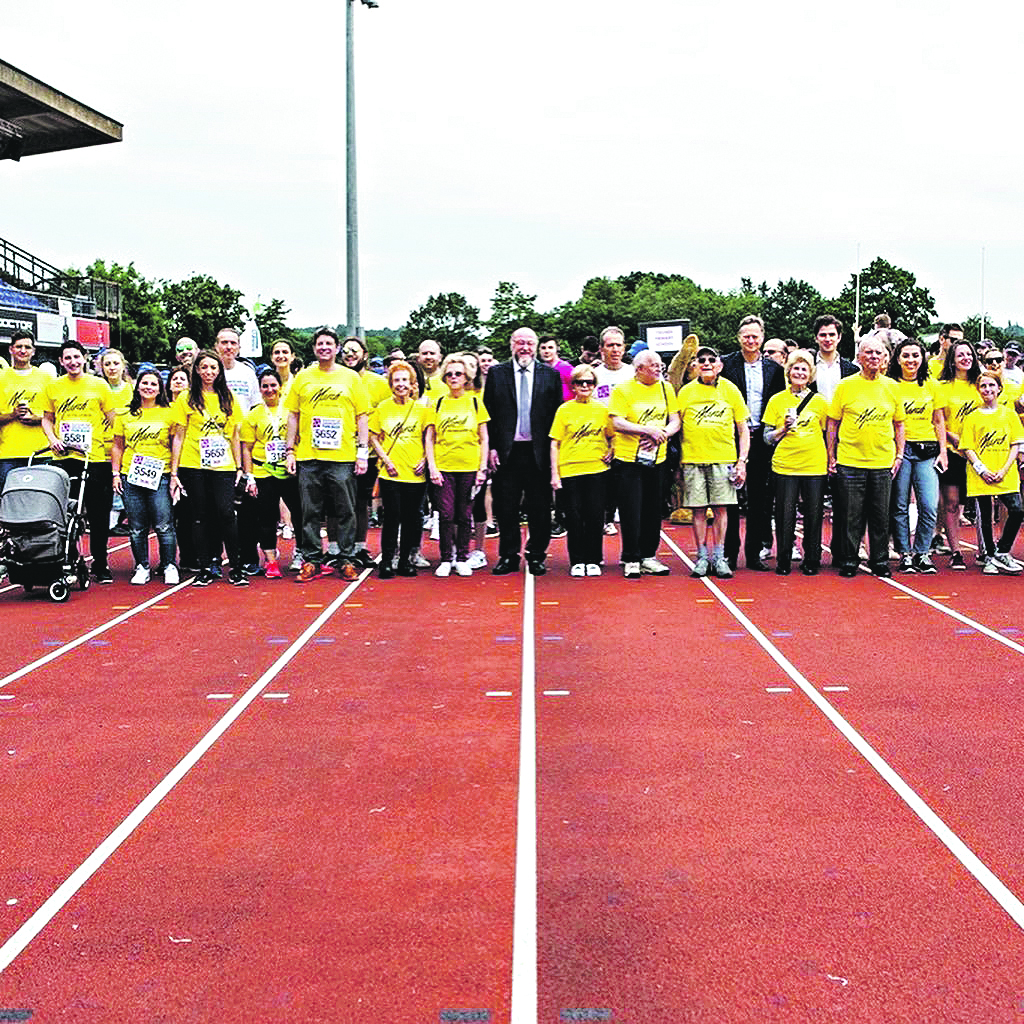
Pre-pandemic, students went to countries such as India and Ghana; this year, in partnership with World Jewish Relief, the programme will include eight days in Rwanda, with the intention that the students will become ambassadors for these issues in their home communities on their return to the UK.
In 2015, Chief Rabbi Mirvis led a delegation of rabbis to a refugee camp on the northern border of Greece and Macedonia. The trip succeeded in raising the profile in the Jewish community of the plight of refugees escaping from Syria, Libya, Afghanistan and Eritrea. He has also highlighted the issue of refugees from Ukraine after the Russian invasion last year.
Again, with inclusivity as his mantra, the Chief Rabbi astonished some sectors of the community in 2018 when he published the first guide for Orthodox Jewish schools to improve the wellbeing of lesbian, gay, bisexual and transgender pupils. The guide, produced together with the Jewish LGBT campaign group Keshet UK, was viewed as “a game-changer”.
In his introduction to the guide, Chief Rabbi Mirvis wrote: “Our children need to know that at school, at home and in the community, they will be loved and protected regardless of their sexuality or gender identity.” There was, he said, “an urgent need for authoritative guidance which recognises the reality that there are young lesbian, gay, bisexual and transgender students in our schools to whom we have a duty of care”.
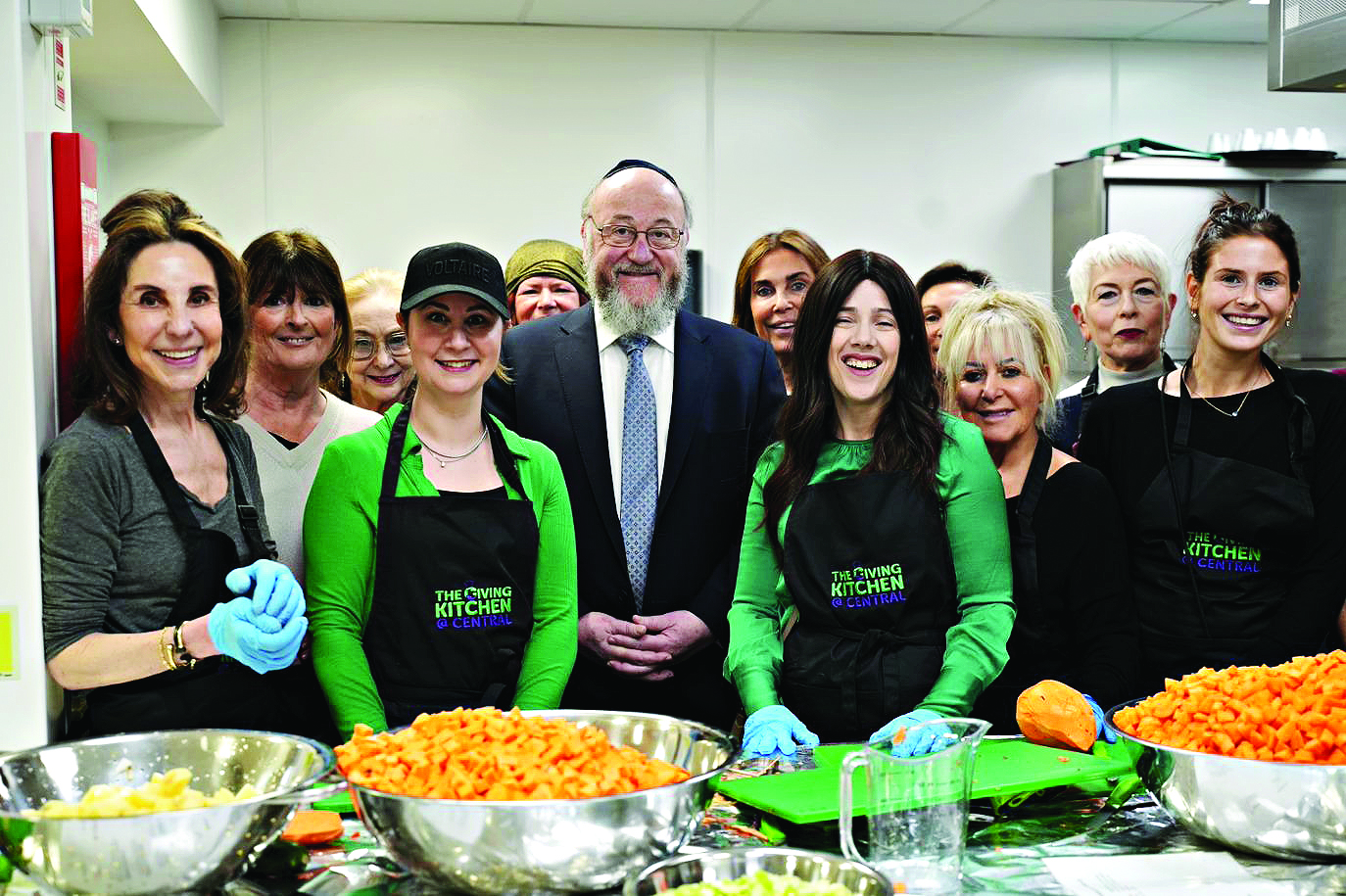
The following year, he made an intervention into national politics with an article in the Times on the eve of the general election. Speaking of “a new poison” which had engulfed the Labour Party, he wrote:
“It is not my place to tell any person how they should vote. I regret being in this situation at all. I simply pose the question: What will the result of this election say about the moral compass of our country? When December 12 arrives, I ask every person to vote with their conscience. Be in no doubt, the very soul of our nation is at stake.”
Noting that British Jews were gripped by a justified anxiety about the prospect of a Corbyn government, he wrote: “How complicit in prejudice would a leader of Her Majesty’s opposition have to be to be considered unfit for office?
“Would associations with those who have incited hatred against Jews be enough? Would describing as ‘friends’ those who endorse the murder of Jews be enough? It seems not.”

Perhaps one of the Chief Rabbi’s most challenging times came in 2017 after comments made about homosexuality and aspects of Jewish law by the senior rabbi of the Sephardi community, Rabbi Joseph Dweck.
The ensuing row — mainly from rabbis on the right of the religious spectrum —caused uproar but the Chief Rabbi stepped in to diffuse the issue, during which the Sephardi Chief Rabbi of Israel, Rabbi Yitzhak Yosef — known as the Rishon l’Zion — all but called for Rabbi Dweck’s head.
Chief Rabbi Mirvis convened a review committee, comprising Dayan Chanoch Ehrentreu, Dayan Menachem Gelley and Dayan Abraham David. Additionally, in the interests of what the Chief Rabbi’s Office called “natural justice”, the QC Professor Julian Lew attended the deliberations. At the time the chief rabbi said he had been “appalled by some of the conduct we have witnessed in our community” and spoke of “poisonous invective” from both sides of the controversy. He “implored” the community “to resist the urge to sow further discord and division. Now, more than ever, we must stand together.”
A solution was reached in which Rabbi Dweck kept his job but had to stand down as a dayan of the Sephardi Beth Din.
The pandemic presented another difficult situation for the Chief Rabbi. The nature of the Jewish community, in which social gatherings play a big part, meant that decisions had to be taken about closure of synagogues — a ruling that came from the Chief Rabbi’s Office before the government ban. The knock-on effect on the life cycle of the Jewish community led to simmering controversy as some continued to flout regulations. More than 1,000 British Jews died from Covid-19 and the Chief Rabbi himself contracted the virus in early 2023.
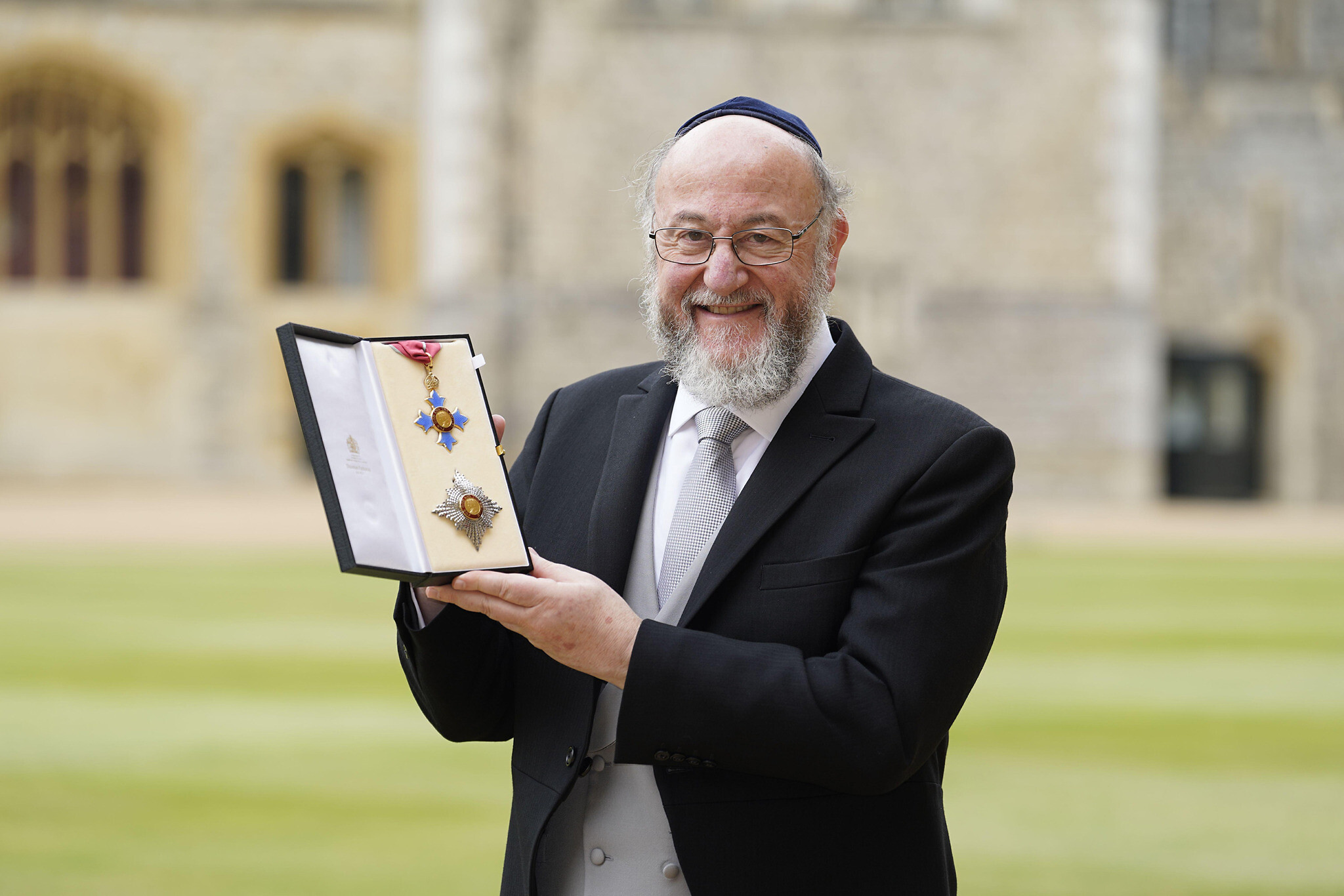
Chief Rabbi Mirvis has long been involved in interfaith work. In 2016 he and the Archbishop of Canterbury, Justin Welby, launched the In Good Faith initiative in which more than 70 rabbis and priests gathered for a day of dialogue.
The networking has proved an important outlet for relations between the Jewish community and the Church of England; while in 2015, on the eve of the 50th anniversary of Nostra Aetate, the document about relations between the Catholic Church and Jews, Chief Rabbi Mirvis flew to Rome to meet Pope Francis.
More recently — and particularly in the wake of the Abraham Accords — the Chief Rabbi has engaged with senior Muslim clerics, meeting the Saudi secretary-general of the Muslim World League in London, Sheikh al-Issah. Such work has borne fruit, as after his London meeting with Rabbi Mirvis, Sheikh-al-Issah spoke in Arabic against Holocaust denial and antisemitism.
In 2017, he became the first Chief Rabbi to host an iftar (a fast-breaking evening meal during Ramadan) in his home for Muslim friends; and the first to make an official visit to an Arab state when he attended the Abu Dhabi Forum for Peace in 2022.
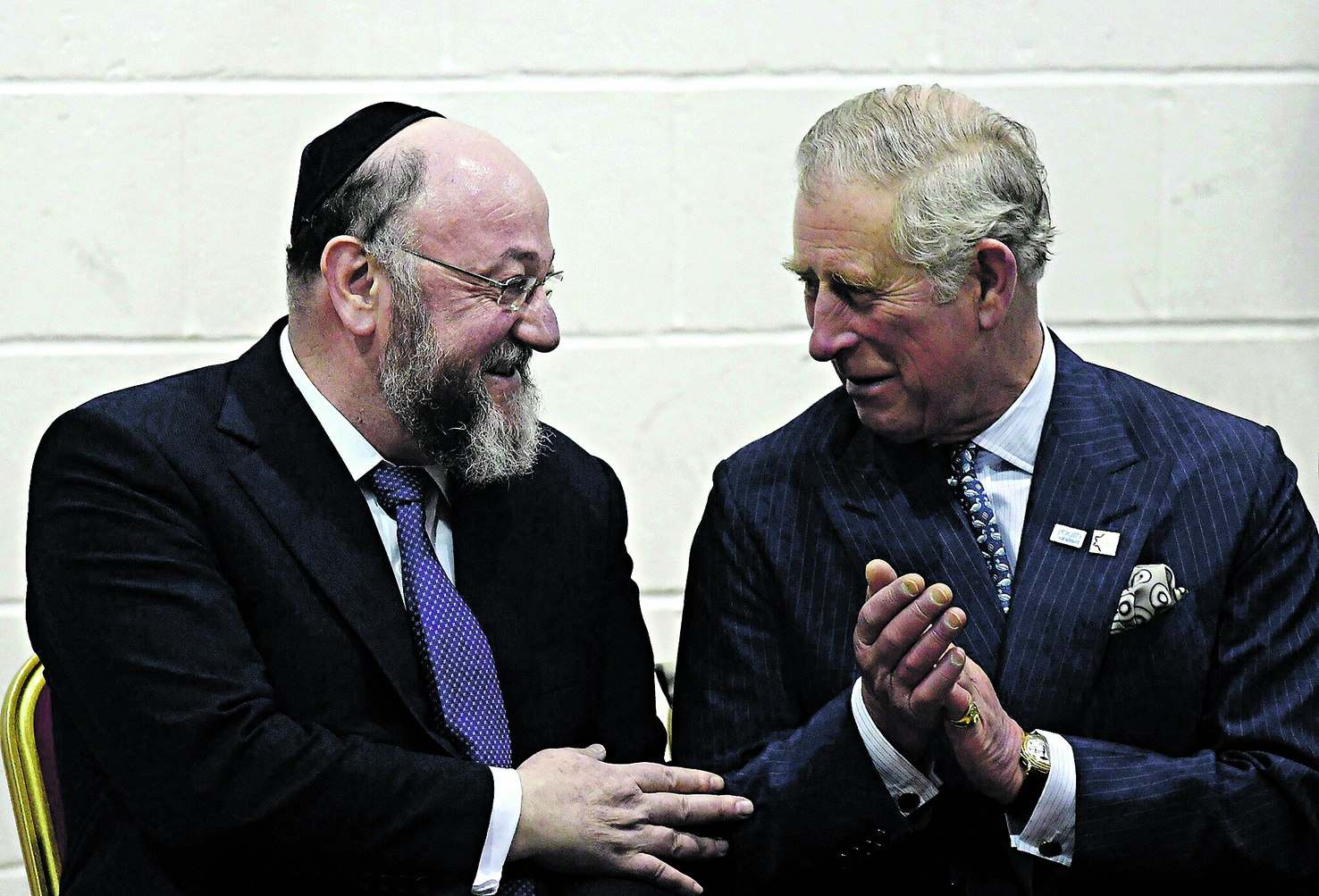
February 1, 2017. REUTERS/Toby Melville
Marking his first decade in office, Chief Rabbi Mirvis was knighted in January this year. The warm friendship shown to him by the then Prince Charles — the first royal prince to attend the installation of a Chief Rabbi — was handsomely echoed when Sir Ephraim and Lady Mirvis spent the Friday night before the 6 May coronation at Clarence House.
A kosher caterer was on hand and every aspect of Shabbat was thought through by the Palace staff, culminating in a special blessing that was said to King Charles by faith leaders — but without the use of a Shabbat-breaking microphone.

Thank you for helping to make Jewish News the leading source of news and opinion for the UK Jewish community. Today we're asking for your invaluable help to continue putting our community first in everything we do.
For as little as £5 a month you can help sustain the vital work we do in celebrating and standing up for Jewish life in Britain.
Jewish News holds our community together and keeps us connected. Like a synagogue, it’s where people turn to feel part of something bigger. It also proudly shows the rest of Britain the vibrancy and rich culture of modern Jewish life.
You can make a quick and easy one-off or monthly contribution of £5, £10, £20 or any other sum you’re comfortable with.
100% of your donation will help us continue celebrating our community, in all its dynamic diversity...
Engaging
Being a community platform means so much more than producing a newspaper and website. One of our proudest roles is media partnering with our invaluable charities to amplify the outstanding work they do to help us all.
Celebrating
There’s no shortage of oys in the world but Jewish News takes every opportunity to celebrate the joys too, through projects like Night of Heroes, 40 Under 40 and other compelling countdowns that make the community kvell with pride.
Pioneering
In the first collaboration between media outlets from different faiths, Jewish News worked with British Muslim TV and Church Times to produce a list of young activists leading the way on interfaith understanding.
Campaigning
Royal Mail issued a stamp honouring Holocaust hero Sir Nicholas Winton after a Jewish News campaign attracted more than 100,000 backers. Jewish Newsalso produces special editions of the paper highlighting pressing issues including mental health and Holocaust remembrance.
Easy access
In an age when news is readily accessible, Jewish News provides high-quality content free online and offline, removing any financial barriers to connecting people.
Voice of our community to wider society
The Jewish News team regularly appears on TV, radio and on the pages of the national press to comment on stories about the Jewish community. Easy access to the paper on the streets of London also means Jewish News provides an invaluable window into the community for the country at large.
We hope you agree all this is worth preserving.
- Chief Rabbi Ephraim Mirvis
- News
- Community
- UK News
- Abraham Accords
- Covid
- Justin Welby
- Archbishop of Canterbury
- Limmud
- Rabbi Shoshana Boyd Gelfand
- yoetzet halacha
- Ma’ayan
- Dr Lindsay Taylor-Guthartz
- Yeshivat MaHaRaT
- London School of Jewish Studies
- Mitzvah Day
- Ben Azzai
- Keshet UK
- Jeremy Corbyn
- Rabbi Joseph Dweck





















